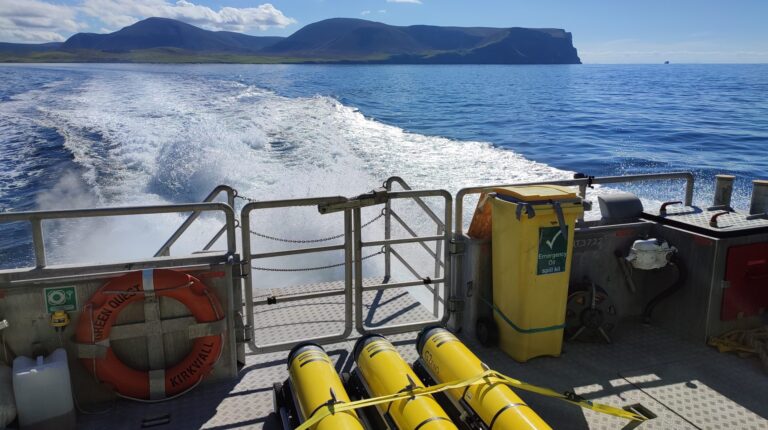A series of cutting-edge underwater gliders have been deployed in the North Sea to support a ground-breaking data-collecting exercise led by the UK’s National Oceanography Centre (NOC) and the Met Office.
The gliders, which have been supplied by Green Marine UK, will be used in six-month intervals to survey ocean depths approaching 200m for a three-year period. The project aims to improve the collection and distribution of data supporting both weather and ocean forecasts, which are important for vessels operating in the territory.
Myles Metson, Green Marine UK operations and technology director, said, “We’re thrilled to be expanding our relationship with NOC supporting this ground-breaking initiative in the North Sea. It builds on several similar projects dating back several years.
“As the work scope expanded, Green Marine technicians travelled to NOC’s Southampton base to receive specialist training on best practice across a range of areas. This included pre-deployment, deployment and recovery strategies as well as on site glider maintenance, battery charging and data extraction post recovery.
“To optimize deployment and recovery missions, our team has also developed a purpose-built frame to handle the gliders stationed on board the Green Quest and Green Isle vessels.”
A range of measurements including salinity and temperature will be delivered to the Met Office in near real time, and form part of a wider program to increase the amount of observational data fed into a new supercomputer, supporting continuous work by the Met Office to improve forecast accuracy.
Jim Trice, OBS Network Manager at the Met Office, explained, “Understanding the relationship between the atmosphere and the ocean is key to improve understanding of weather and climate. This data has given us greater insight into vital aspects that form the weather systems that affect us every day.”
Commenting on the project, NOC engineering manager Stephen Woodward said, “The National Oceanography Centre excels in supplying innovative technology, which include our state-of-the-art gliders, to institutions like the Met Office. The gliders we are providing can operate independently for long periods of time while their cutting-edge sensors excel at gathering crucial information about the state of our oceans.
“Securing a better understanding of ocean circulation and the data gathering potential of gliders is a key driving factor behind the project. It will be vital to inform future ocean modeling conditions and weather patterns, and, in time, this will support decision making in vital UK services, such as search and rescue, counter-pollution and ocean biodiversity.”



